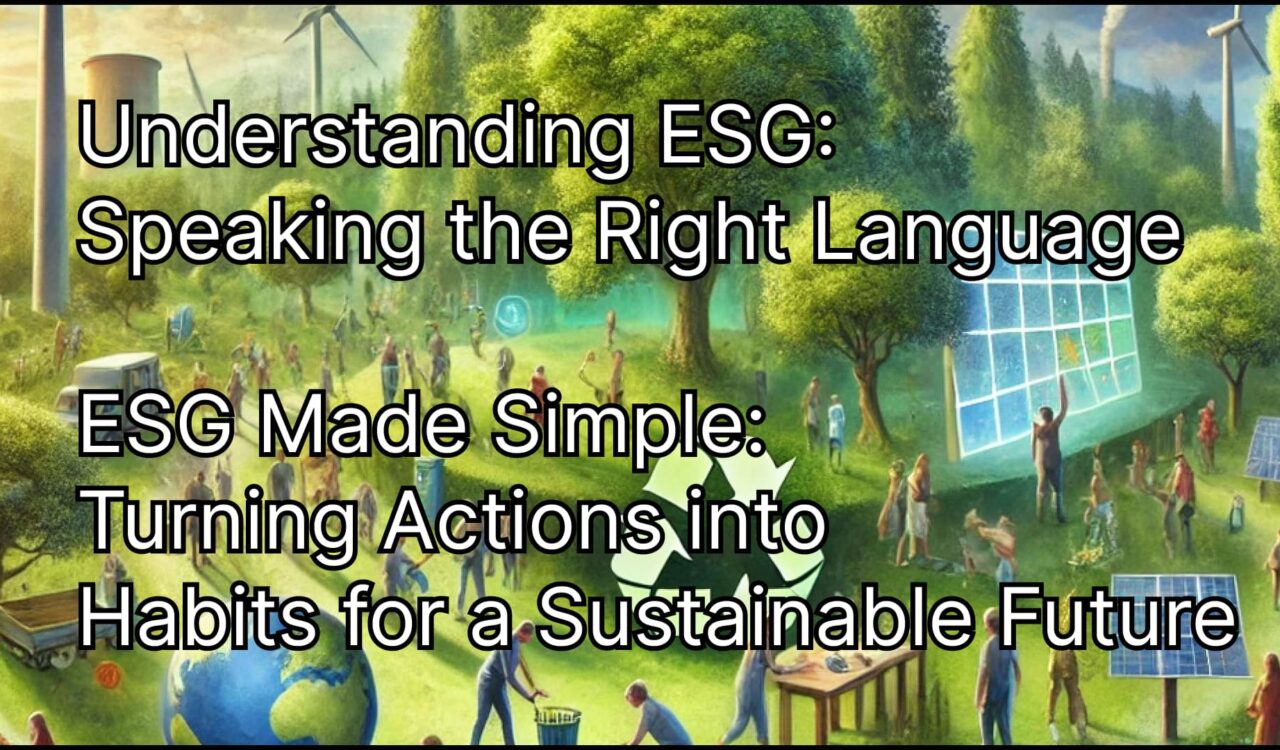Environmental, Social, and Governance (ESG) criteria are becoming increasingly important in today’s business world. Yet, many people find these concepts daunting and difficult to integrate into their daily routines. As an ESG expert, I have found that the key to understanding and implementing ESG principles lies in simplifying these concepts and turning sustainable actions into habits. Just as TV remote controls have become an effortless part of our lives, so too can sustainable practices.
Understanding ESG: Speaking the Right Language
One of the biggest hurdles in ESG is the jargon. Terms like “carbon footprint,” “social equity,” and “corporate governance” can be overwhelming. As a qualified accountant this reminds me of accountants I worked with who spoke in the language of accountancy, leaving those without a financial background bewildered. I would often ask them to speak English!!
Part of the solution for ESG is to translate complex terms into plain English.
Environmental (E): This aspect focuses on how businesses impact the planet. Simplified, it’s about reducing waste, saving energy, and using resources efficiently.
Social (S): This pertains to how businesses interact with employees, customers, and communities. In plain terms, it’s about fair treatment, equal opportunities, and giving back to society.
Governance (G): This involves the rules and practices that govern a business. Simply put, it’s about being transparent, ethical, and accountable.
Turning Actions into Habits
Understanding ESG is one thing; integrating it into daily operations and personal lives is another. The key is to develop sustainable habits from simple actions. Let’s draw a parallel to TV remote controls. Initially, it was a novelty, but now, it’s an integral part of our daily routine. Similarly, sustainable actions can become second nature.
- Start Small: Begin with manageable changes. For example, reduce paper use by going digital for most documents. This small step not only conserves resources (and saves money) but also sets a foundation for larger changes.
- Be Consistent: Consistency is crucial for habit formation. Encourage daily practices like turning off lights when not in use or using reusable bags. Over time, these actions will become automatic.
- Educate and Involve: Education is essential in making sustainable habits stick. Inform your team or family about the benefits of recycling, energy conservation, and ethical business practices. Engage them in discussions and activities that reinforce these habits.
- Measure and Improve: Track your progress. Use simple metrics to measure improvements, such as a reduction in energy bills or an increase in recycling rates. Celebrate small victories and continually seek ways to improve.
Making ESG a Way of Life
The ultimate goal is to make ESG principles a natural part of everyday life. This means creating an environment where sustainable choices are the default option. Here are a few strategies:
Incentivise Sustainable Behaviour: Reward practices that align with ESG goals. This could be through recognition programs, bonuses, or simple acknowledgments.
Simplify Processes:
Make sustainable choices easy. For example, place recycling bins in convenient locations and automate energy-saving measures.
Lead by Example:
Demonstrate your commitment to ESG. When leaders and influencers adopt sustainable practices, it encourages others to follow suit.
ESG doesn’t have to be complicated. By breaking down the concepts into simple, actionable steps and turning these actions into habits, we can make sustainability a part of everyday life. Just like the TV remote control, sustainable practices can become second nature, leading us toward a more responsible and sustainable future.
In the end, the journey toward sustainability is about consistency and commitment. Keep it simple, make it a habit, and watch as these small changes collectively make a significant impact.
